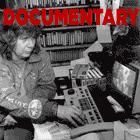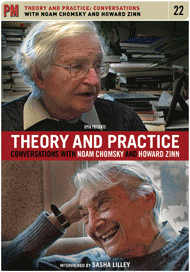This weekend, we went to a peace demonstration in D.C. We talked with a lot of people and had a good time, but also left with a lot of concerns about the direction of the anti-war movement and renewed confidence in some of our earlier misgivings.
We want the war to stop and we think the Democrats have proven, yet again for the really slow at home, that they have no intention on stopping it. At the last Democratic Presidential debate, all three of the front runners refused to promise that troops would be withdrawn from Iraq by the end of their first term in 2013. This is insane. With the exception of one very nice Kucinich supporter I met at the rally, no one really thinks any of the other candidates have a decent shot and the republicans are all just as insane. Like always, no surprises here, the people of the country will have to stop the war.
Stephen Duncombe, author of
Dream: Re-imagining Progressive Politics in an Age of Fantasy, recently said in an interview in the
Indypendent:
"Think about normal protests, which are a spectacle. The march on Washington: how does it work? We all get on a bus, we all go down to Washington, we get off the bus, we go on a route that has already been worked out with the police, we march literally around in a circle, then we listen to our leaders speak to us on bad sound systems, and then we march over to a designated civil disobedience area, sit down, and have the police arrest us. Now this is a spectacle of impotence. The police have essentially engineered everything for us and what the police haven't engineered the protesters have done. In fact, that's what the protester's job is: to make it a safe environment worked out in advance with the police. Now I worked on some of those, so I'm critiquing myself here.
The globalization protests worked completely differently. They were chaos. They were carnivals. They were street theater. They were planned, but they were planned by the participants, not with the police. And they were also highly effective. The shutting down of Seattle, what happened in Prague, what happened in London, and other cities around the world, were highly effective at getting attention drawn towards the World Trade Organization, GATT, NAFTA, and so on. 9/11 sort of put the kibosh on that and you saw the return of the repressed march-chant protest where we literally become spectators toward our own activity." (from original transcript)
And that sad spectacle was what we saw on Saturday. Souvenir guys sold peace protests t-shirts dated to remind us that we actually went to the peace protest like it was disney world or a serious basketball game. There have been upwards of twenty "major" demonstrations in DC and countless other ones around the world, literally involving millions of people. What have we produced? A million dead in Iraq, years of war, and a very real concern that the U.S. will attack Iran (tangential side note: we don't think the U.S. will attack Iran, but it still boils our blood). In Michael Moore's documentary, Fahrenheit 9/11, there is a popular scene of Bush mis-speaking:
George W. Bush: There's an old saying in Tennessee. I know it's in Texas, probably in Tennessee, that says: "Fool me once...” [pause] "... shame on...”. [pause] "Shame on you...” [pause] "If fooled, you can't get fooled again."
Everyone loves this and loves to call Bush a moron for not learning from his mistakes, but the sad truth is that we've had about half a decade of war in Afghanistan and Iraq and the peace movement hasn't stopped any of it. Lefties love to point out that Liberals are nuts for believing that any of their knights of hope will stop the war and that the definition of insanity is "is doing the same thing over and over and expecting different results." But the Left is just an insane: we have no real vision for how to stop the war and it shows. Speakers on a stage and marching in circles is not working and hasn't been for some time. It is difficult to live in this time and place, but we have to get past these self-therapeutic rituals of illusory resistance. We say "No justice, No Peace," and nobody asks what that really means. We have had no justice; does "no peace" really mean shouting loudly on empty saturday streets?
There's a real battle over words like "normal" amongst the left and academia. Who is to say that transgendered isn't normal and that white middle-class guy is? While we accept the basic premise of this, the bus we went down on was populated by some of the most abnormal people one could find. One bore looked and sounded like the Comic Book guy from The Simpsons who kept droning on and on about Humphrey in '76, another guy wearing a permanent helmet and an air traffic controller headset seemed like he belonged in a group home, and a guy with a serious facial rash seemed enthusiastic about, I'm not joking, a possible Sam Nunn presidential bid. The same trot guy we always see, young, but getting a little older now, still hawking his papers and arguing his correct line. Of course, we also met a swell couple and talked to them for several hours and had a grand old time with a number of people we met. This isn't intended to be mean, but we bring up these examples because we think there is something important about this.
When the big anti-war demos began, we really thought that the best thing that could happen is if they stopped. We had just gotten off the explosion of the corporate globalization movement in the late nineties and it felt weak to return to the march, chant, argue with Trot paper sellers, and get back on bus routine. We thought that the groups organizing the marches, no matter how well intentioned, had to sign expensive insurance waivers to get permission to hold their marches and wouldn't jeopardize anything past pre-arranged Civil Disobedience and heated rhetoric from the stage. In the absence of this dog-and-pony shows, we imagined the anarchists and other independent lefties swooping in to create a carnival of resistance. There haven't been a lot of these big demos in the last few years, but no one has risen to take the place of the March-Chant-Protest spectacle. The baton has been passed to...
On the bus, we listened to a nice, well-intentioned bus captain talk to us about a new kind of movement. But the major groups (UFPJ, NION, WCW, ANSWER, TON, etc ad infinitum ad boredom) are bickering and fighting and can't even get their act together. She talked about a new kind of movement, but passed out the same weathered copy of some paper we put down after a only a few sentences of another tired old re-tread article. She talked about a new kind of movement, and we were told how important the day was, but the speakers had repeated the same old things and we called out the same old chants and got back the same old responses. And we looked around our tired bus coming back and something crystalized.
They say that Bush has 30% of the country who still like him, but he can't go much lower. Because these people will like him no matter what: because he's white, because they're afraid, because their minds are so traumatized into that bad space where you think bombing Iran will somehow keep everything holding on for that much longer, because just because. And these people will never stray; after so much wicked and stupid things Bush has done, their loyalty is branded into their very eyes and censors what they can possibly hear. They're the ones at the pre-screened rallies, thanking him for all he's doing. They're politically like Terri Schiavo: there, but not. The fools who don't know when to stop, take measure, and re-align back to a better path.
I'm a lefty and will be until I die. I think we can have a world of justice and freedom and that capitalism and its various sicknesses, man-made that it is, can be unwrought and a better society can be formed. I don't think there is a liberal solution possible: we couldn't reform our way out of the concentration camps and we can't lobby our way past the death squads. But looking around the bus, I felt too much of a connection between Bush's thirty percent, following blindly, and this antiwar moment, performing our anger, but resisting nothing. We owe it to ourselves to create the new strategy. Because this isn't working.
Labels: activism, strategy





